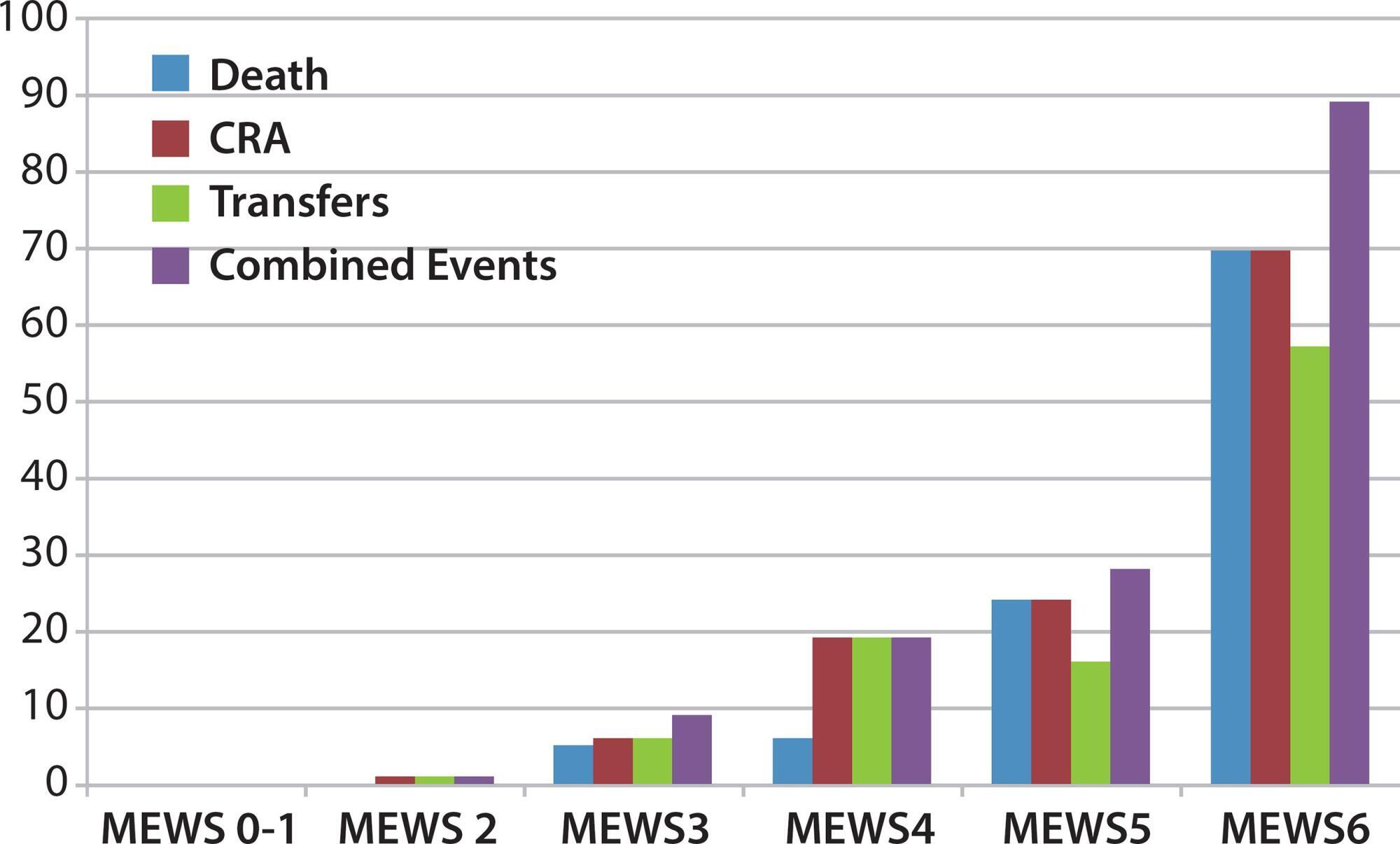-
ORIGINAL ARTICLE
Evaluation of the performance of the modified early warning score in a Brazilian public hospital
Revista Brasileira de Enfermagem. 2019;72(6):1428-1434
10-21-2019
Abstract
ORIGINAL ARTICLEEvaluation of the performance of the modified early warning score in a Brazilian public hospital
Revista Brasileira de Enfermagem. 2019;72(6):1428-1434
10-21-2019DOI 10.1590/0034-7167-2017-0537
Views0ABSTRACT
Objective:
To evaluate the performance of the modified early warning score (Mews) in a nursing ward for patients in clinical deterioration.
Method:
This is an analytical, quantitative and predictive study. Mews’ parameters (systolic blood pressure, heart rate, respiratory rate, temperature and level of consciousness) were evaluated every six hours. The following events were reported: death, cardiopulmonary arrest and transfer to intensive care. The evaluations were performed in a hospital of reference in the state of São Paulo, Brazil.
Results:
A total of 300 patients were included (57 ± 18 years old, males: 65%). There number of combined events was observed to be greater the higher the score’s value (00%; 00%; 01; 09%; 19%; 28%; 89%, respectively, for Mews 0; 1; 2; 3; 4; 5 and 6; p < 0.0001). Mews ≥ 4 was the most appropriate cut-off point for prediction of these events (sensitivity: 87%, specificity: 85% and accuracy: 0.86).
Conclusion:
Mews properly measured the occurrence of severe events in hospitalized patients of a Brazilian public hospital’s nursing ward. Mews ≥ 4 seems to be the most appropriate cut-off point for prediction of these events.
Keywords:Critical CareEmergency MedicineNursing CareOrgan Dysfunction ScoresRapid Response Teams in HospitalsSee more



